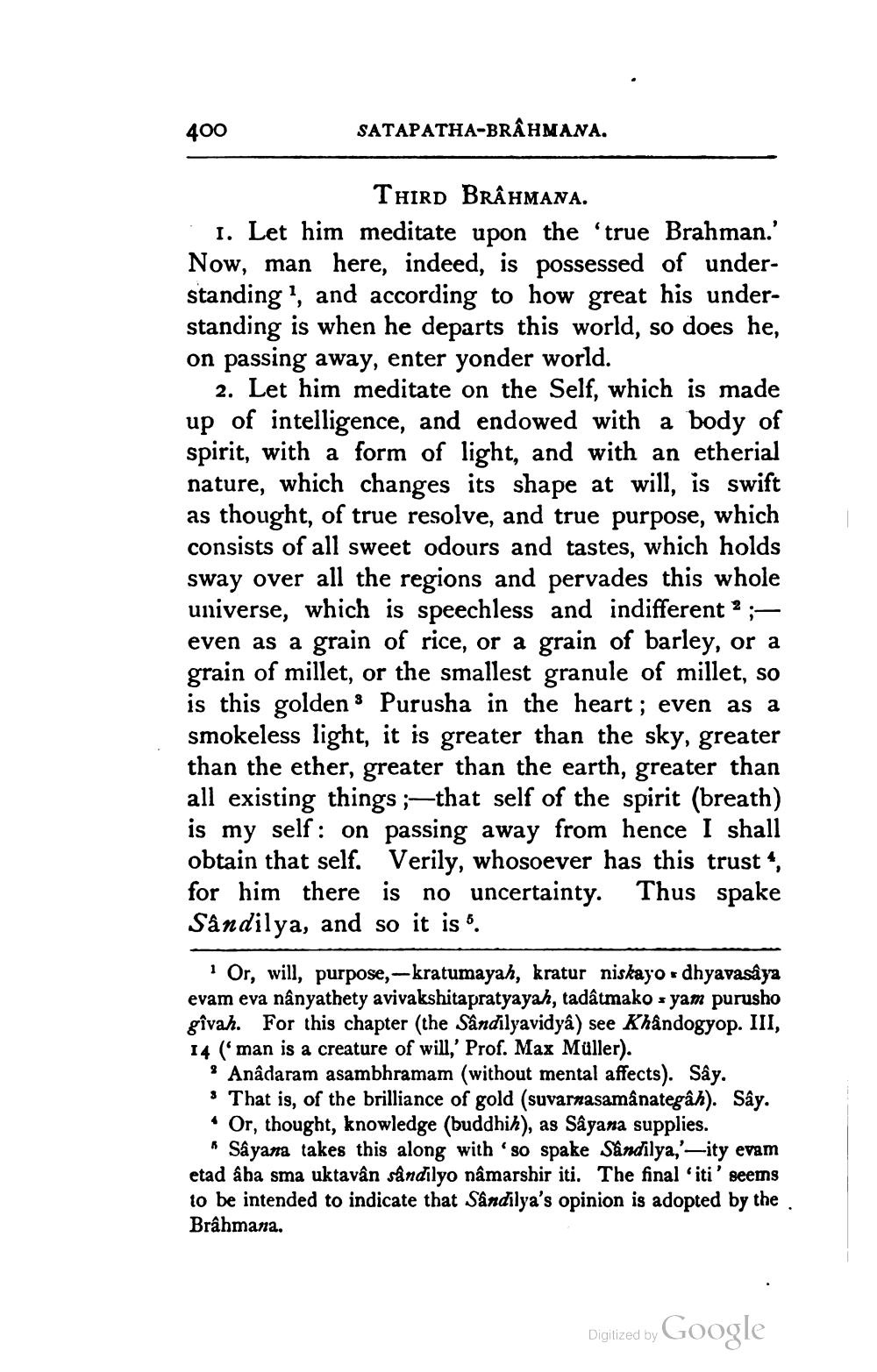________________
400
SATAPATHA-BRÂHMANA.
THIRD BRÂHMANA. 1. Let him meditate upon the 'true Brahman.' Now, man here, indeed, is possessed of understanding !, and according to how great his understanding is when he departs this world, so does he, on passing away, enter yonder world.
2. Let him meditate on the Self, which is made up of intelligence, and endowed with a body of spirit, with a form of light, and with an etherial nature, which changes its shape at will, is swift as thought, of true resolve, and true purpose, which consists of all sweet odours and tastes, which holds sway over all the regions and pervades this whole universe, which is speechless and indifferent ? ;even as a grain of rice, or a grain of barley, or a grain of millet, or the smallest granule of millet, so is this golden Purusha in the heart; even as a smokeless light, it is greater than the sky, greater than the ether, greater than the earth, greater than all existing things ;—that self of the spirit (breath) is my self : on passing away from hence I shall obtain that self. Verily, whosoever has this trust 4, for him there is no uncertainty. Thus spake Sândilya, and so it is 6.
i Or, will, purpose,- kratumayah, kratur niskayodhyavasaya evam eva nânyathety avivakshitapratyayah, tadâtmako - yam purusho gîvah. For this chapter (the Sândilyavidya) see Khandogyop. III, 14 ('man is a creature of will,' Prof. Max Müller).
Anâdaram asambhramam (without mental affects). Sây.
That is, of the brilliance of gold (suvarnasamânategâh). Sây. • Or, thought, knowledge (buddhih), as Sâyana supplies.
* Sâyana takes this along with so spake Såndilya,'—ity evam etad âha sma uktavân sândilyo nâmarshir iti. The final 'iti' seems to be intended to indicate that Sandilya's opinion is adopted by the Brâhmana.
Digitized by Google




